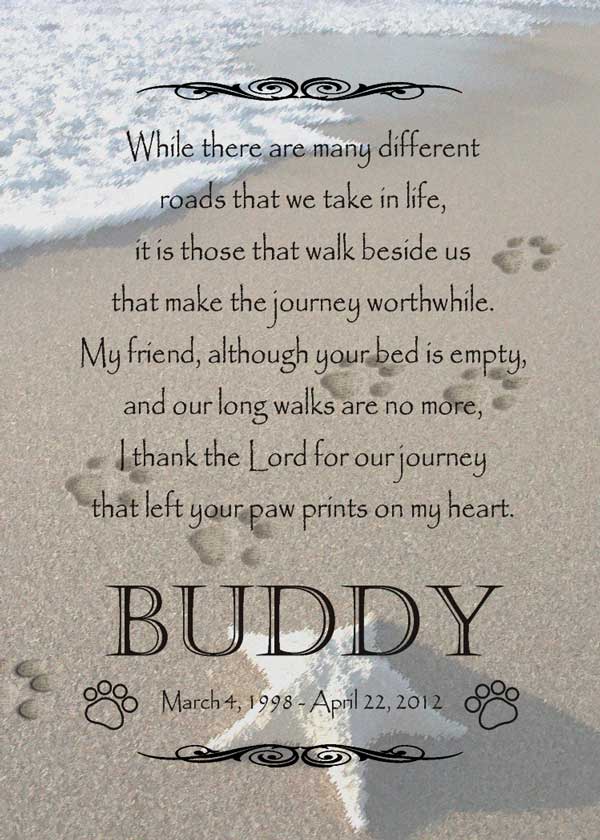Table of Content
As the dog stops eating and drinking, accidents will occur less frequently considering that gastrointestinal functions are starting to shut down. As your dog no longer gets up to potty or drink, place some incontinence pads underneath them and offer water as needed as long as the dog can swallow. Many owners, however, report that their dogs remain very present and affectionate most of the time. Some report them even being clingy, although at times they may still seek distance. Before my uncle's dog passed, he reported that in the previous days, his pretty collie dog was not showing up as much as before.
A visitation can occur at any time but the most common incidences occur during the night. Bury the dog on your property, in a plastic bag in a box if you wish, at least 2 feet deep. Place a label with your dog’s name and your information securely on the plastic bag. With a degree in Education and a love for writing, Nicole aims to share her and others' expert knowledge with pet lovers worldwide with Hepper. Thank you for this compassionate and informative post.
For Cats
The grave should be dug at least 3 feet deep and placed in an area that will not erode or be dug up again. You can mark the cemetery with a specific headstone or plant a tree or bush in that location. Before burying your dog on your land, you need to check with your local laws first. Unfortunately, the local government does not allow pet burials on private property in some areas. You can have your pet’s ashes returned to you if you choose this method of cremation. Choose a reliable business to ensure that your pet’s ashes are sent to you .
This may be the case if your pet dies in the middle of the night or over a holiday. However, some pet crematories have 24/7 phone service for these kinds of situations. The most important thing to know is that the remains of the deceased dog must be handled as soon as possible. If it is during normal business hours, your vet’s office can help talk you through the steps.
Sure-Fire Dog Constipation Home Remedies
This is the second day of her having a fever, shivering, weakness. I've been trying to keep her comfortable by cooling her down and keeping her hydrated. She still eats and drinks but that's all she does.
Something which cannot be taught is how to take the emotional burden and stress of death. The only thing that should keep you going is the thought this too shall pass, and there will be a better tomorrow. Many veterinarians provide support services for families that are dealing with traumatic events — like losing a pet. It requires little to no money, but it does take time and will result in you having to personally handle your dog’s body. You can find a local cremation center through your vet or Google.
Memorialize Your Loveable Pet
I keep thinking we should have taken her to vet to get IV fluids, even if he said to wait, how we shouldn't have listened to him, and she could have lived longer. Up until those last few days when the anemia was really getting her down, her quality of life was good. I don't believe she ever felt any pain aside from those final moments when she was struggling to breathe.

Before burial, remove the body from any non-biodegradable materials before burial. The body can be placed in a wooden or cardboard casket if desired. Choose a location that is not likely to erode or be accidentally dug up again. You may wish to place a headstone or other marker at your pet’s grave to memorialize your beloved pet.
L.A. County leaders demand answers after puppy is …
Be mentally prepared and expect rigor mortis and stiffening to take place within hours. Shortly before or when a dog dies, the bladder or bowels may empty. These bodily reactions are part of the natural event of dying and should not be interpreted as suffering. Breathing, sighing, or gasping may be noticed too; but in this case, it's not to get oxygen as it happens during life. Ask your vet to check on your dog and make sure he or she is not congested or in distress. This refers to both bladder and bowel incontinence.
When a pet passes away at home, it’s usually a difficult situation. Being reminded that your beloved pet died away at the place where he or she felt most at ease, among family, may be a comforting thought. It’s critical to take action as soon as possible after your pet has passed away to avoid further complications.
When your dog passes away, picking up your departed dog’s ashes may be an extremely sad experience for many dog owners. A memorial ceremony or burial for your dog can help you cope with the pain of losing a beloved companion. Another opportunity to bid your cherished pet farewell has presented itself.

For a local group, contact your local humane society or your veterinarian for information. Online, search for pet loss support group or pet bereavement. On Facebook, there are several pages for this, including Pet Loss & Bereavement. If you want to have your dog cremated, you can either arrange this through your vet’s office or organise it yourself. While cremation is a more costly option than burial at home, it gives you more flexibility in what you can do with the cremains or memorial.
After you’ve had your moment, it’s time to figure out your next steps. The absolute worst nightmare for any dog owner is the death of your beloved companion. Most people don’t know how to handle what’s left of their dog, which is what frequently adds to the trauma and grief. Cremation centers are quick for pick-up of deceased pets, and there are locally available, so no much stress. If you lose your dog at home, call your veterinarian for pick-up service or drive your dog to the vet office.
Incontinence may occur due to a lack of sphincter control; the dog may soil easily because he or she is weak and can no longer get up and move around as he used to. A dry mouth can be remedied with assistance, but gum-color change is often a result of systemic failure. Help your dog to get comfortable by repositioning them to prevent bed sores.
Follow these procedures to bring closure, comfort, and respect to your pet’s memories after his or her passing. Aside from these, they can detect human illness and death as well. It can be emotionally distressing and calling a friend or relative to help you is often a good idea. They can help you make decisions about what to do when your dog dies at home. However, if your dog is considered “restricted, dangerous, or menacing” then you must contact your local counsel within 24 hours. Label the bag with both yours and your dog’s names.
They may come to your home to pick up your pet’s body and take care of the arrangements for burial. The majority of them can be accessed even after business hours. Losing a pet is one of the most difficult situations a person can go through.

No comments:
Post a Comment